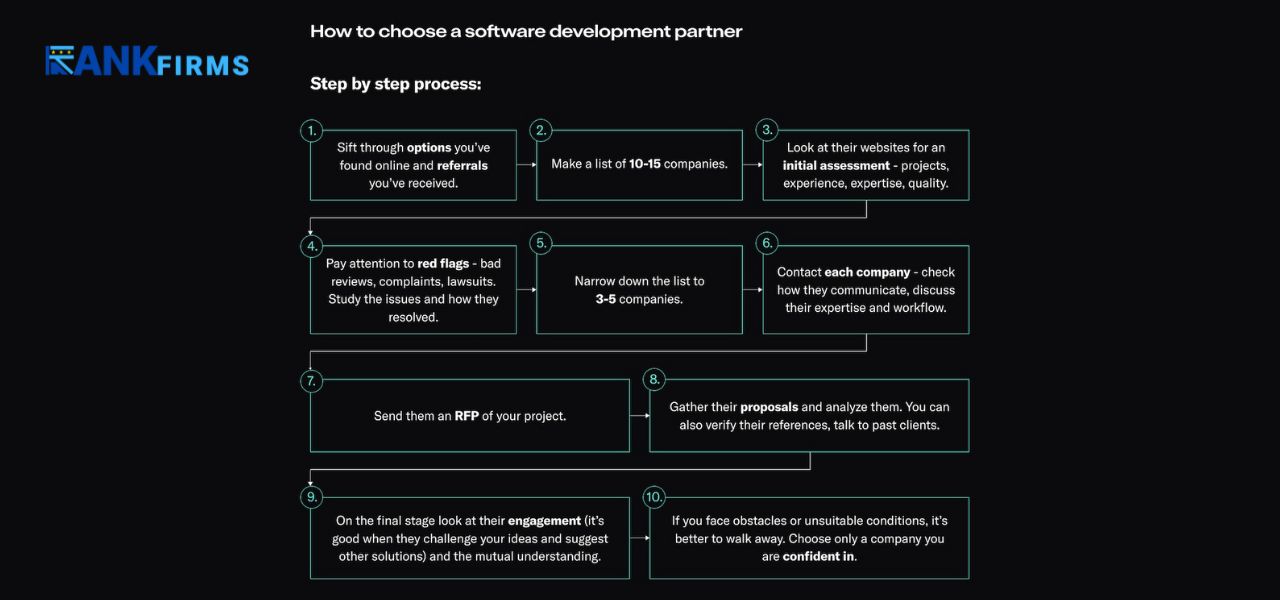With just a quick tap into your phone, you make payments for your groceries, fuel, bills, loans, and many others. We can’t imagine our lives without the software that we use every day. Software is saving so much of our time and energy that we can invest it in some other productive work.
Innovative software development fuels the digital transformation that underpins modern business success. It’s the invisible hand shaping customer experiences, streamlining operations, and driving growth across industries.
- If you look at the global software development market cap is projected to reach a staggering $1.03 trillion by 2027, reflecting a Compound Annual Growth Rate (CAGR) of over 25%.
- Additionally, the global population of software developers is expected to reach 28.7 million by the end of 2024, a significant rise of 3.2 million in just four years. The United States alone boasts over 4.3 million developers.
- A whopping 84.7% of software development projects are driven by enterprise applications, highlighting the crucial role software plays in empowering businesses of all sizes.
These statistics paint a clear picture: software development isn’t just a niche industry; it’s a fundamental driving force in today’s digital landscape. But how exactly does it contribute to business growth?
Software development companies are thriving to help different types of businesses manage and operate their work effortlessly with the help of software. Additionally, here’s how software development empowers businesses to thrive in the digital age:
1. Enhanced Efficiency and Productivity:
Automation:
Software automates repetitive tasks, freeing up employee time for higher-value activities. Imagine streamlining processes like data entry, customer service inquiries, or inventory management, allowing employees to focus on strategy, innovation, and customer relationships.
Improved Workflows:
Customized software solutions can optimize workflows, eliminating bottlenecks and streamlining information flow across departments. This fosters collaboration, reduces errors, and ensures tasks are completed efficiently.
Data-Driven Decisions:
Powerful software allows businesses to collect, analyze, and interpret vast amounts of data. These insights empower data-driven decision-making, enabling businesses to optimize marketing campaigns, personalize customer experiences, and make informed strategic choices.
2. Unmatched Customer Experiences:
Convenience and Personalization:
Businesses can leverage software to create user-friendly mobile apps, e-commerce platforms, and self-service portals. This provides customers with convenient 24/7 access to products, services, and information, fostering brand loyalty and satisfaction.
Real-Time Interaction:
Software facilitates real-time communication and engagement with customers. This could involve chatbots for customer support, personalized product recommendations, or social media interaction tools, building stronger customer relationships and boosting satisfaction.
Omnichannel Experience:
Software development allows businesses to create a unified customer experience across all touchpoints, whether online, in-store, or mobile. This seamless experience strengthens brand image and customer satisfaction.

3. Increased Innovation and Competitive Advantage:
Rapid Prototyping and Development:
Software development tools speed up the process of creating and testing new product ideas. This allows businesses to quickly adapt to changing market trends and customer needs, fostering innovation and agility.
Customizable Solutions:
Unlike off-the-shelf software, custom development creates solutions tailored to a company’s specific needs and goals. This unique edge gives businesses a significant competitive advantage in the marketplace.
Scalability and Growth:
Software can be scaled to accommodate business growth. Businesses can add features, integrate with new systems, and manage increasing data volumes, ensuring their technology infrastructure keeps pace with their ambitions.
4. Cost Optimization and Revenue Generation:
Reduced Operational Costs:
Streamlined workflows, automation, and improved data analysis can lead to significant cost savings. The software can optimize resource allocation, minimize errors, and reduce manual labour costs.
New Revenue Streams:
Software development opens doors to new revenue models. Businesses can create subscription-based services, develop and sell software products, or leverage e-commerce platforms to expand their reach and generate new income streams.
These were the prominent benefits of developing and integrating software in your business. But how would you ensure the success of a software? By getting it developed by an expert and reliable software development company.
The challenge starts here – when you have to find a development company that not only understands what you need but is also flexible and cooperative with the changes and updates that you demand.
So, how would you find such a reliable source? By evaluating multiple IT services companies. We have listed a few questions with the desired answers. These FAQs will help you find the best match to your needs and expectations.
What Should You Know Before Hiring a Software Company?

What are the Platforms and Technologies You Work With?
Platforms and Technologies:
Languages:
Depending on the project requirements, a developer might work with languages like Python, Java, JavaScript (various frameworks like React or Angular), C++, or Swift (for mobile development).
Databases:
MySQL, PostgreSQL, MongoDB, or Oracle are some popular choices for data storage and retrieval.
Cloud Platforms:
Cloud platforms like Amazon Web Services (AWS), Microsoft Azure, or Google Cloud Platform (GCP) are becoming increasingly common for building, deploying, and scaling applications.
Development Tools:
Version control systems like Git, code editors like Visual Studio Code, and project management tools like Jira or Trello can streamline the development process.
What is Your Experience with Agile Development?
Agile Development Experience:
Many developers are familiar with Agile development methodologies. Agile focuses on iterative development, short development cycles (sprints), and continuous feedback to ensure the project meets the client’s needs. An experienced development team will be comfortable adapting to Agile workflows and collaborating effectively within Agile team members.

What are the Core values that guide your work?
Core Values Guiding Work:
Quality:
A reliable company prioritizes delivering high-quality code that is well-documented, efficient, and maintainable.
Innovation:
The best developers within the team are constantly seeking new technologies and solutions to improve their craft and deliver the best possible outcomes for clients.
Communication:
Clear and concise communication is crucial for a successful project. The lead developer should be able to explain technical concepts understandably and actively listen to client feedback.
Problem-Solving:
Software development is an iterative process that involves solving problems and overcoming challenges. An experienced developer will have a strong problem-solving mindset and be resourceful in finding solutions.
Also Read: The Best Software Development Frameworks of 2024
Will you provide tech support or maintenance support for the software?
Tech Support and Maintenance:
The scope of tech support and maintenance offered will vary depending on the agreement with the company. Some common options include:
Warranty Period:
This might cover bug fixes and minor issues for a predetermined timeframe after project completion.
Maintenance Agreements:
These can be ongoing contracts where the developer provides ongoing support, bug fixes, security updates, and potential new feature development.
How do you ensure the security of the system data and information?
Data Security and Republic Act 10173 (Data Privacy Act of 2012):
A reputable developer/company will prioritize data security and be familiar with the Philippines’ Data Privacy Act. Here’s how they might ensure data security:
Secure Coding Practices:
Following secure coding practices to minimize vulnerabilities in the code.
Regular Security Testing:
Conducting penetration testing and vulnerability assessments to identify and address potential security risks.
Data Encryption:
Encrypting sensitive data at rest and in transit to protect it from unauthorized access.
Access Controls:
Implementing access controls to restrict access to data only to authorized personnel.
Compliance with the Data Privacy Act:
The software development team are familiar with the requirements of the Data Privacy Act and ensure the system adheres to its provisions regarding data collection, storage, processing, and disposal. This may involve implementing data subject rights mechanisms and data breach notification procedures.
Do you provide flexibility and familiarity with diverse software environments?
Flexibility and Diverse Software Environments:
A skilled developer within an experienced company should be adaptable and comfortable working in various software environments. This could involve using different programming languages, frameworks, and development tools depending on the project’s specific needs.
What is the pricing model that you offer?
Pricing Model:
There are several common pricing models for software development:
Fixed Price:
A pre-determined cost agreed upon upfront for a well-defined project scope.
Hourly Rate:
The company charges an hourly rate for the time of each developer spent working on the project.
Retainer Model:
The client pays a monthly retainer fee for ongoing development work or support.
Project-Based:
A hybrid approach combining elements of fixed price and hourly billing depending on project phases.
The best pricing model will depend on the specific project requirements and the agreement between the company and the client.
Should I keep myself updated with market trends?
Market Trends Knowledge:
Having a basic understanding of market trends in software development can be beneficial as a client, but in-depth knowledge isn’t necessarily required. By understanding current trends, you can make more informed decisions about the features and functionalities you want in your software.
Staying updated on trends can help you identify innovative technologies that could benefit your software and potentially give you a competitive edge. A basic grasp of trends allows you to have more productive conversations with your development team. You can discuss the feasibility of incorporating trending technologies or features and understand the potential benefits and limitations
How often do you communicate with the client?
Client Communication Frequency:
The frequency of communication will vary depending on the project’s size, complexity, and the client’s preferences. Regular communication is essential, and an experienced and reliable team will strive to keep the client informed of progress, address any concerns, and ensure the project stays on track. This might involve daily stand-up meetings, weekly progress reports, or pre-scheduled calls to discuss project details.
Also Read: How to choose Right Software Development company?
In Conclusion
Software development serves as the cornerstone of modern business success. By leveraging the right technologies and partnering with skilled development team , businesses can unlock a multitude of benefits.
However, navigating the world of software development can seem daunting. When selecting a development company, consider their experience with relevant platforms and technologies, their comfort level with Agile methodologies, and the core values that guide their work. Data security is paramount, so ensure the team prioritizes secure coding practices and adheres to the Data Privacy Act (Republic Act 10173).
Remember, effective communication is key. Discuss your project requirements, pricing models, and desired communication frequency to establish a clear and collaborative working relationship. By partnering with a qualified and experienced firm, you can transform your software vision into reality and propel your business towards a future fueled by innovation and growth.







